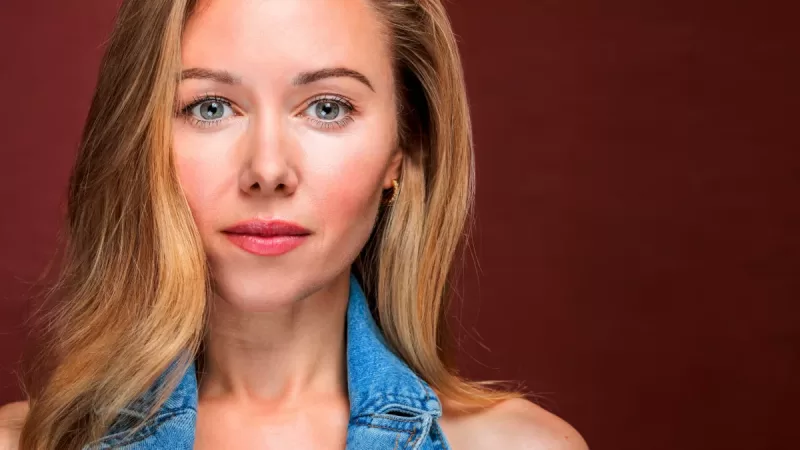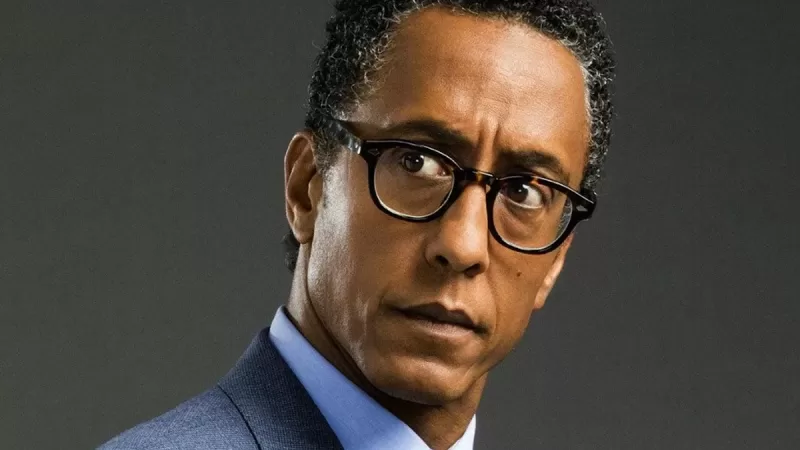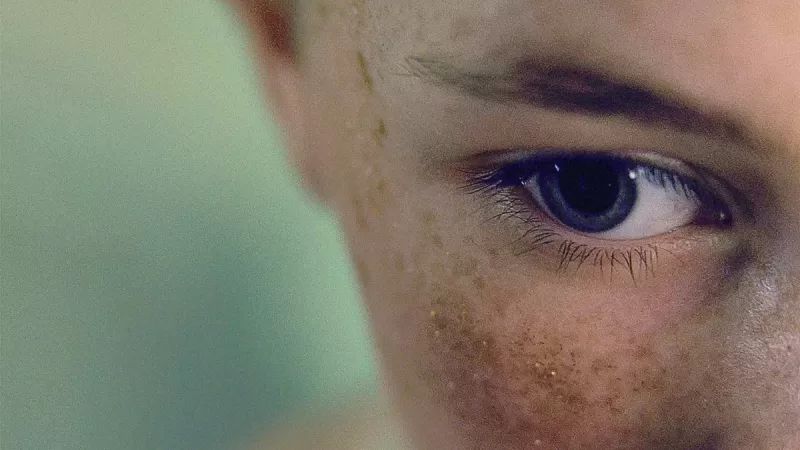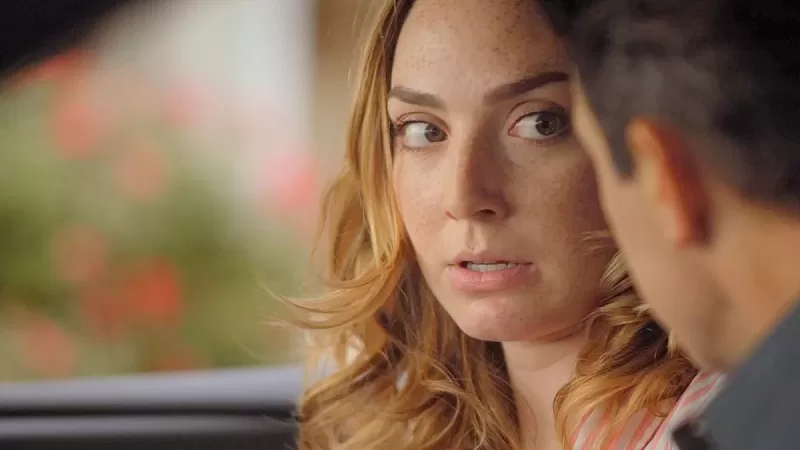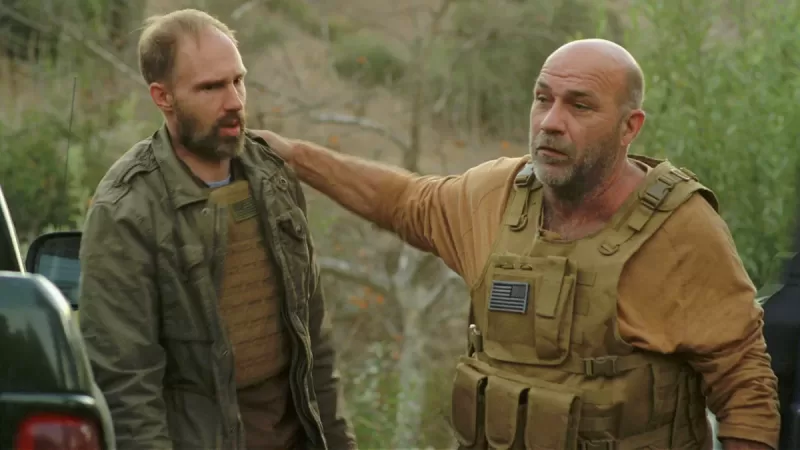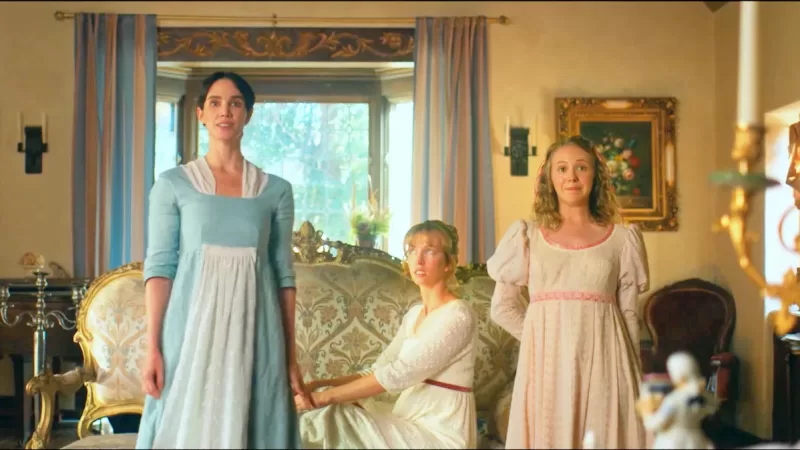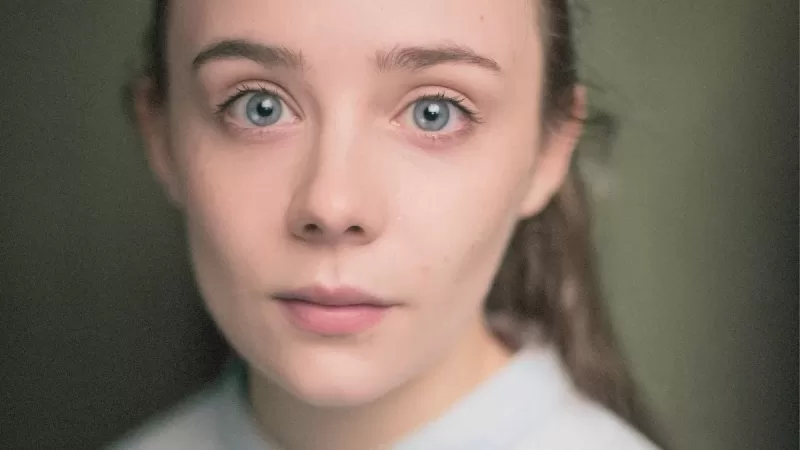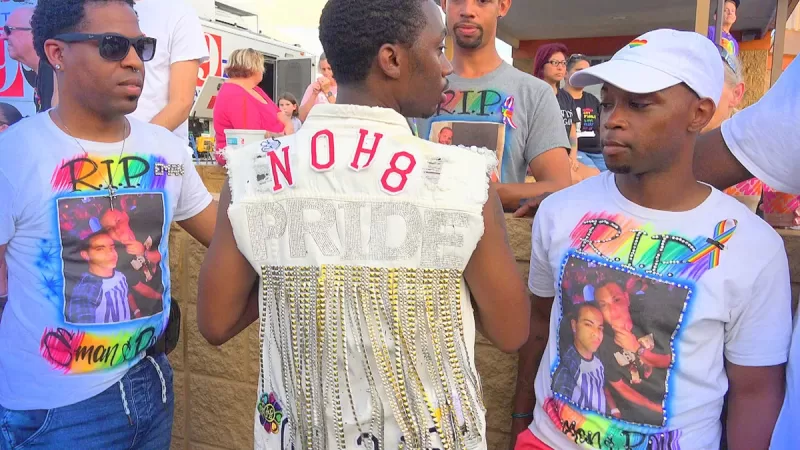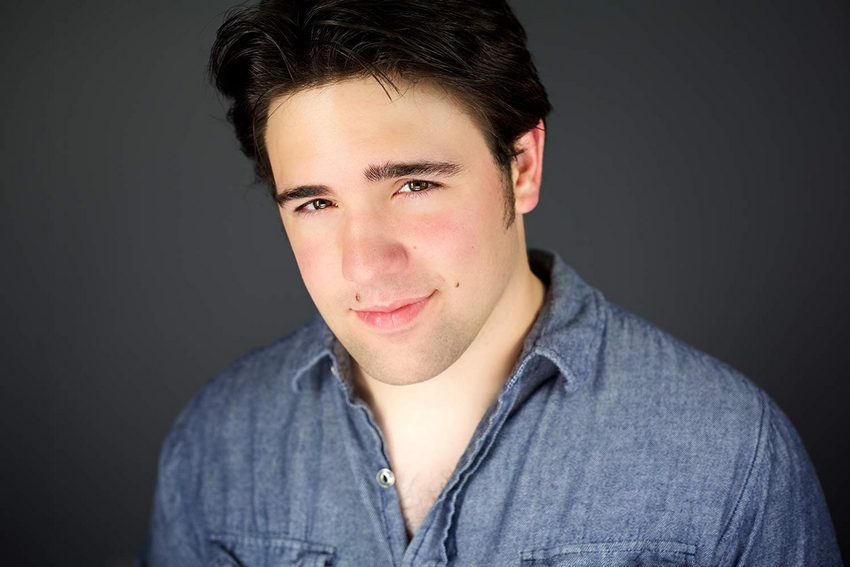
indieactivity : Introduce your film briefly?
Joe Duca : “Evergreen” is the story of an almost-thirty-something couple: Paul, a conservative Catholic guy, and Gena, a more progressive, agnostic woman, who head to Paul’s family cabin in Colorado for a romantic Christmas getaway. Paul plans on proposing, Gena thinks they’re going to have sex (finally). Suffice it to say, they have different expectations.
After those expectations clash, they decide to swear off anything physical for the weekend, and engage in a high stakes game of truth-or-dare without the dare, each having to answer any question the other asks with complete honesty. This tests their relationship, revealing intimate, repressed traumas and memories of past loves. It’s a story about identity, ideological differences, and acceptance of a universal truth: you can either run from or heal your past, but you can’t hide from it.
As it’s a romantic drama exploring a lot of heavy stuff like sex, grief, and religion (the impolite stuff you’re not supposed to talk about at the dinner table), we really strove for a hyper-realistic sensibility. It’s funny when it’s funny and heavy when it’s heavy, so we just tried to let it be what it was and get out of the way, striving for a similar tone as films like “Blue Jay” by the Duplass Brothers or Linklater’s “Before” Trilogy.
Stylistically, we were really going for a sort of “subjective realism,” a la “Wild Strawberries” or “Another Woman,” using surrealist techniques, like externalizing past exes in the form of real characters, and the interplay between composed frames and handheld camera moves to both communicate and contrast the interior lives of the characters to achieve a more psychologically and emotionally authentic portrait of the things you can’t always see.
As to the festival circuit, the film made its debut at the 52nd Annual WorldFest-Houston Film Festival, where it won the Houston Broadcast Film Critics Association awards for Best Picture, Best Actress (Amanda Maddox), & Best Supporting Actress (Olivia Grace Applegate), and a WorldFest-Houston Gold Remi in the feature film category. The film will continue to screen at a variety of festivals, having traveled to Vero Beach Wine + Film Festival in June, followed by the Fort Worth Indie Film Showcase and a few more surprises not yet announced.

indieactivity : Give a background of your personal experience with the story, writing, production and marketing?
Joe Duca : My buddy, the lead actor Tanner Kalina, came to both me and our producer, Marshall Kistner, simultaneously (though I didn’t know Marshall at the time) with the germ of an idea: “A Christian couple snowed inside a cabin, trying not to have sex.” As a Catholic myself, the idea of a sort-of Guilty Catholic’s Guide To Celibate Snow Days was funny and intriguing.
However, at the time, I was knee deep in post on another feature (Shout out to Her Name Was Jo), so I offered a few thoughts, but in the early stages Tanner and Marshall really ran with it, really did the heavy lifting, developing it from a more comedic angle. Then they came back to me with an offer to collaborate, and from there I sort of shepherded us in the direction of a more 60’s French New Wave-y drama. Together, we blended a hard, delicate cocktail, which incorporating our respective cinematic tendencies and interests into something unique, sort of a “romantic traumedy.”
From there, we crafted an outline and brought in actors, and I wrote the script and finessed it from a combination of rehearsal and great contributions from the production team, especially Marshall. It was very much the fruit of collaboration, filtered through the lens of my quirks as a writer. On the production side I handled a lot the casting and selecting a D.P. (Matthew Plaxco is a God among men, hire him), as well as leading a lot of rehearsal with the cast.
Also collaborating with our Production Designer, the endlessly creative Oliver Johnson (hire him) to take a luxury cabin and make it into a very specific, lived in space, filled with Christmas and family nostalgia. Fortunately for me, the heavy lifting on the nitty-gritty logistical side has been more than capably handled by our Producers: Marshall, Krissy Jones, Justin Graver, Savvas Yiannoulou, and Anna Donnella. They have way more patience than I do.
indieactivity : Did you start writing with a cast (You or any) in mind?
Joe Duca : Definitely, as Tanner and I had been itching to collaborate for a while, I really tried to develop Paul in a way that allowed Tanner to stretch his craft, and combine elements of both our personalities. And, in the later stages, I was workshopping scenes in rehearsal and rewriting based on what our rounded out cast of stellar actors in what Amanda, Olivia, and David Bianchi brought to the table. So it was very much tailored to their strengths and idiosyncrasies and the discoveries we made together.
And during shooting, we left as much room as we could for improvisation. For me, as much as I love dialogue, what’s really important is achieving the emotional beat of a scene honestly, and many times that’s best served by letting the actors play and discover in the moment. It is make-believe, after all, and I think that sense of child-like wonder, that exploration from the core of a person; that’s 9-times-out-of-10 better and more surprising than what I could dream up alone in a room in North Hollywood. I’m much more drawn to naturalistic performances — stillness, awkward pauses, stolen glances — and human beings just being rather than actor’s emoting. So, at that point, just let go of the words and see what happens.

indieactivity : How long did you take to complete the script?
Joe Duca : Hopefully, a script is never really “complete.” If it was, we could just hand it out at the theater and save lots of money. But in terms of the shooting script, given the nature of the production, I had a little over two months to write the script. My process is fairly organic. I basically come up with 40-50 scenes on note cards, drill down to my favorites, and start over. From there I chart out the emotional beats, and I keep beating it out (and banging my head) until it feels real.
Marshall and Tanner’s outline was invaluable during that process. I’d write a draft, send it out to the producing team and various mentors (particularly Joe Aaron of “Doug” fame), then rewrite, send it out again, rewrite… Once we had something pretty lean, we rehearsed with the actors for a month and then incorporated those insights and discoveries.
indieativity : How did you develop ‘your film’?
Joe Duca : I don’t know that a film can ever belong to one person; especially this one. As I mentioned, it was the fruit of a ton of collaboration, and in this case, that’s not just a pretty platitude. Every member of our team contributed something essential. It’s more like everything you do as a craftsman, you do as yourself, and in your voice, and if you look closely you can see the fingerprints. For me, developing “my” film is really a matter of doing “my” job, which is telling the story that wants to be told. I’m more just listening to the melody and trying not to stray too far from it.
So it’s about coming to a shared vision and serving that, and developing that. But, as to something more concrete, I just try to craft touchstones for the cast and crew — photos, books, songs — to communicate the feeling that speaks to me. Particularly influential were odd things like the short stories of Andre Dubus, particularly “Miranda Over The Valley,” whiskey, old Christmas memories, “It’s A Wonderful Life,” David Bazan’s Christmas Album “Dark Sacred Night,” Henry Nouwen’s “Wounded Healer,” Karol Wojtyla’s “Love & Responsibility.”
I’m also a big believer in the idea of allowing the setting and place to inform choices (shout-out to Meeker, Colorado!). After I’d visited the location for our tech scout, I knew how I wanted the film to feel
indieactivity : How was it financed?
Joe Duca : The producing team worked some voodoo magic. Justin, Marshall, Krissy, and Tanner had a lot of skin in the game, putting up their own money to fund the physical production of the film. Because of that fact, our shooting schedule was much shorter and more restrained than an average “on location” shoot. When it came to finishing costs, it all boiled down to family, friends, blood, sweat, tears, and an absolutely gangbusters Kickstarter campaign put together by the producing team which garnered over $15,000. You know, the usual indie story.

indieactivity : Is there anything about the independent filmmaking business you still struggle with?
Joe Duca : The Business itself. Film is such a dice roll of an industry, and while the democratization of film technology and the rise of streaming provide a ton of opportunity for new voices to be heard, it also just provides a ton of voices. Thousands and thousands, in fact; so cutting through that cacophony, positioning your film on the festival circuit, identifying your audience, it’s all such a slog. But any business is like that, and I think it’s important for artists, and filmmakers especially, to take the business side of it as seriously as the creative.
I think of it like this: the creative side is the arrow, and the business side is the bow. You need both sides for either to matter. I will say, the festival side is really tough when you’re just starting out and don’t have many reliable relationships in an industry based on relationships. But that’s just another opportunity to get creative and find ways to build those relationships — new ones — with programmers and festival directors and other artists at those events. In the long run, it’s preparation for the long haul; no matter how high up the ladder you climb, you’ll always need to connect with new collaborators and gatekeepers.
So it is a real struggle to be heard, but at least there’s more opportunity now than ever before. You just have to make smart bets and keep rolling the dice. And rolling. And rolling some more. You owe it to your films and your audience to keep fighting.
indieactivity : How long was your pre-production?
Joe Duca : After developing the outline with Tanner and Marshall, the rest of pre-production took about 2 months to develop the script, gather our cast and crew, secure all of our vendors (don’t forget your production insurance!), and set out for a long drive from Los Angeles to Meeker, Colorado.
indieactivity : What was your rehearsal process and period?
Joe Duca : As I mentioned, we had had about a month of rehearsal. Initially, I like to focus on scene analysis and chemistry, assign readings and music and movies (my poor actors), and sit around having the actors recount and experience the history of the characters. I really enjoy getting to know the characters like you would if you met them at a party, asking about where they’re from and what they want from life. Trying to create a well of experiences we can all draw from down the line. I like to spend time just hanging out with the actors as well, so I can get to know them and see how to best benefit their “process” as performers, and how to best support them as both a coworker and a collaborator when the cameras stop rolling.
Every actor is different, and I think any good actor’s director has be able to speak their specific acting language. Once we had a foundation of “real” memories and ways of speaking and moving, we were ready for the words. We would rehearse both with and without the script (I’m a big believer in seeing if you can achieve the same scene in different ways with different notes and harmonies). It’s tough, because at first everything is fresh and fun, but then it gets stale and familiar. When you push through that to sort of the “second nature” phase, where everybody has the words and moments in their bones, that’s where you can really dig.
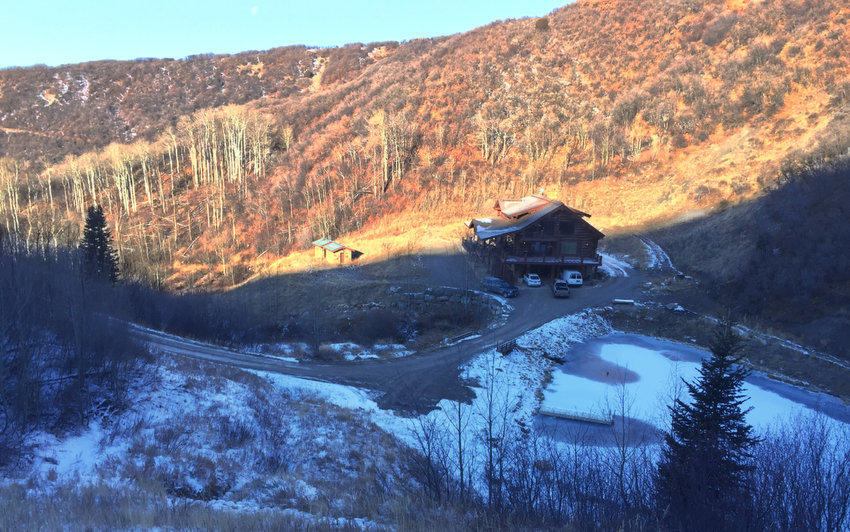
A lot of people talk negatively about over-rehearsing, but in this case I think it was very fruitful, and allowed for a lot of freedom on the day. And that’s really a credit to my cast, who put in the hours, brought everything they had, and trusted me to help them get where we wanted to go. If you picked up a copy of any one actor’s script, there’s a novel’s worth of notes on every page, a testament to them as craftsmen. I can’t speak highly enough of their work and work ethic, which was also a hugely important factor in us making our days during production.
We hardly ever had to stop a take for a line prompt or script check, and our first takes — which can often function as extra rehearsals or warm-ups — instead gave us authentic performances. Every scene took considerably less time to shoot because our actors knew their lines (and their characters) so well.
indieactivity : You shot the film in 10 days. How long were your days?
Joe Duca : Long, but not too long. We had a 90-page script and a mere 10 days to shoot the film in its entirety. This insane schedule even included a day where we shot 24 pages in a 13-hour span! The production team held the mental health of our cast and crew above all else by providing hot meals three times a day and even doing a nightly raffle where cast and crew members won fun little prizes. It was kind of like a filmmaking summer camp, but with snow.
indieactivity : Did the tight shooting schedule make it harder or easier? How did it affect performances?
Joe Duca : It’s a give and take. It’s harder in that it restricts your freedom, and you can’t always get the coverage you want, but easier in that you have to be very clear going in what you’re looking for, and so it refines your sensibilities and you don’t have time to second-guess. That 4th-quarter pressure can lead to some pretty amazing stuff. And again, that’s the benefit of the rehearsal we did: because of that pressure, you’re forced to take big risks and pull from deep places, and you also have that well to work from that you’ve created over the past month.
It’s so much easier to stay on-schedule when you have such a talented and dedicated cast, but that achievement is even more so the product of a great crew. Ai Dang, our 1st Assistant Camera, always kept everything in focus, not a single slip, which is huge. We couldn’t have kept on time if it weren’t for him making sure every shot came off beautifully. Our tiny G&E team, Jimmy Moreno, Tanner Nichols, and Daniel Duca, hustled their butts off to set up shots and lighting with our limited equipment and tight schedule. Without their incredible work, we wouldn’t have been able to make our days and achieve what we did. Don’t overlook their contributions. Finally, Garrett Forbes, my 1st Assistant Director, kept us motivated, and laughing, and on schedule. He really is the unsung hero of this film. In addition to all these things, Garrett also plays the priest at the end of the movie.
And we were also able to stay on schedule because we were well prepared at the start of each shoot day with a clear plan of action. Meeting over late-night dinners with Garrett, our Director of Photography Matt Plaxco, and the producers, we talked through our shot lists to create sensible schedules and designed the lighting and camera setups with overhead diagrams and floorplans, all so that we could be as efficient as possible “on the day.”
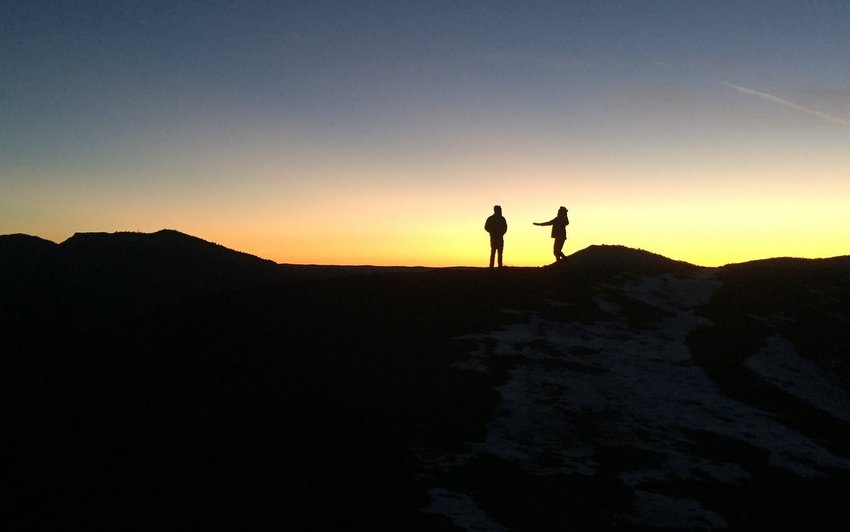
indieactivity : How much did you go over budget? How did you manage it?
Joe Duca : That’s a Marshall question, but we did come back from physical production with money left in the bank. But I can say the production team: Marshall Kistner, Krissy Jones, Justin Graver, Savvas Yiannoulou, Anna Donnella; they slept the least of anyone, feeding us, scheduling, keeping the budget lean and effective. So I know they achieved something remarkable (and fiscally responsible).
indieactivity : How important is marketing? Do you think a project can make any dent without it these days?
Joe Duca : SUPER, MEGA, ULTRA IMPORTANT. I think identifying a niche audience, leveraging social media, it’s everything for an indie film, almost as important as having a good film. You should go in with a marketing plan. And our team has done a phenomenal job. As we saw with Jim Cumming’s “Thunder Road” and countless other indies, reaching and developing your audience, creating buzz and excitement, it’s essential to the success of the movie. Don’t think of it as “dirty work,” you’re gonna spend years of your life making something beautiful, you owe it to your art to do everything you can to get it seen. Whether you self-distribute or seek traditional distribution, the number #1 thing you need is market share, a built-in audience. True fans who will champion your work. And good press helps with that (thanks in advance).
indieactivity : What was the experience like of working with such a small shooting crew?
Joe Duca : It’s so fun. Of course it’s hard, but that’s part of the challenge (others who slept less might disagree). It’s like playing for an underdog. The challenge is its own reward. It’s cliche (because it’s true), but you really become family. Honestly, as a director, I don’t know what’s better, the experience of making the film with such great people, or the work itself. Obviously, it’s both, but there’s nothing like making something beautiful with people you love. I mean, popping champagne to “Sugar We’re Going Down” the moment we wrapped, visiting the Glenwood Hot Springs on our off day, wrapping our camera in hand warmers to stop it from freezing in the cold… those are memories that will always matter and can’t be explained. We shared something that only we had, in a time and place only we know. And that’s a spiritual kind of special.
indieactivity : The film looks stunning. How did you get such a good look when shooting so fast?
Joe Duca : Thank you for saying so. For that, we owe a huge thanks to our two-man camera department. Matthew Plaxco, the director of photography, brought a clear vision for the look of the film and executed it with the G&E team. As I spoke about above, our 1st Assistant Camera Ai Dang expertly focused every shot; there were a handful of scenes where Ai seamlessly pulls focus as characters move through the frame. It’s so smooth you don’t notice the focus is changing, and that’s what makes it so remarkable.
Again, a tight budget and remote location meant we had to keep the G&E team very small. Jimmy Moreno, primarily our Key Grip, served also as the 2nd AC (and later became the film’s colorist). Tanner Nichols, our gaffer, took advantage of our limited equipment in innovative ways, including building light boxes and butterfly frames (and all kinds of other devices) out of scraps to rig up lights and screens both inside and outside of the cabin. My brother Daniel came to Colorado to be our set PA and ended up joining the G&E team out of necessity. He picked it up quickly and was able to give us a much-needed helping hand while providing jolts of energy to our tired crew.
Going in, I had ideas about dollies and sliders, but there simply wasn’t time for any of that set-up. As a result, Plaxco spent most of the shoot with the camera strapped to his back with an Easy Rig, and it was his instincts and talent while operating handheld (plus a telepathic-like connection with Ai Dang) that created the visual language of the film and allowed us to achieve a look we could be proud of.
And finally, the Colorado landscapes where we shot don’t need much help to look stunning.
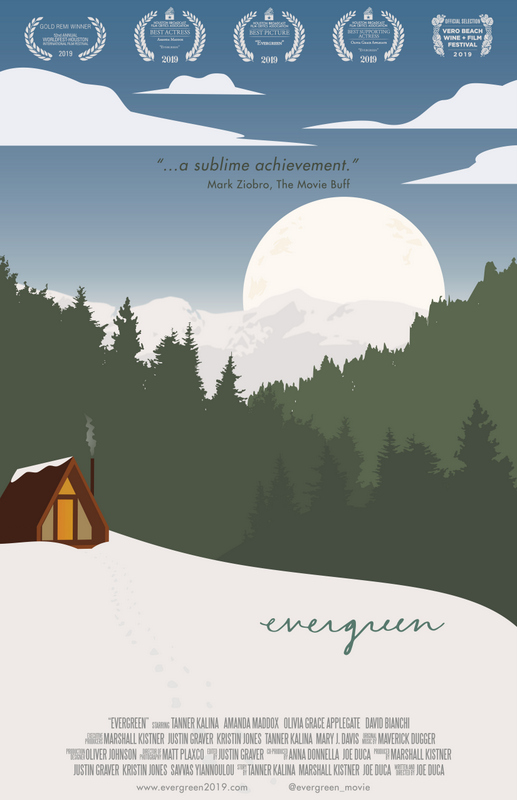
indieactivity : Did you look at rushes? On what format?
Joe Duca : Sometimes; on Justin’s laptop after wrapping for the day. I want to take a second to recognize Justin. He produced, but he also gave 6-plus months of his life to editing in the evenings while working a full time job. So the film you see, the writing, the story, the performances, Justin deserves as much credit as I or Marshall or the actors. Probably more. The movie you see is his. You should interview him. (And hire him).
To finish answering your question, given the length of days, and tech limitations, it wasn’t really feasible to review rushes in a traditional way. I had that experience on my other feature, and it’s tough and problematic, but it really forces you as a director to be very aware and specific in the moment.
indieactivity : What were the advantages and disadvantages in the way you worked?
Joe Duca : The advantages are working under pressure, which I think helps produce better work (or at least finished work), and the camaraderie created by that urgency. The disadvantages are particularly the inability to get more coverage (no matter how gifted you think you are as a director, coverage is your friend, unless you’re Sidney Lumet or Clint Eastwood or God), and not having the time to review rushes or edit sequences.
You don’t get a chance to see what’s working and what isn’t in terms of moving images while you’re out there. Often times, you think you got something that you didn’t, or vice versa, colored as you are by the emotions of the moment, be them positive or negative. The result can be a nightmare for the editor.
indieactivity : What else have you got in the works?
Joe Duca : I have another feature, “Her Name Was Jo,” that completed post-production around the same time as “Evergreen,” and I’m developing a graphic novel: “Satan’s Favorite,” a doc: “Death of The Undertaker,” and a third feature: “Mosby’s Ghosts” (I’m a glutton for punishment). On behalf of all of us,
Follow Joe Duca on Social Media
Website
IMDb
Facebook
Twitter
Instagram
Escape by Howard J. Ford stars Sarah Alexandra Marks from Saban Now Out on VOD
Actress Sarah Alexandra Marks stars of a Saban action/thriller titled Escape
Andre Royo to Deliver Keynote Address at Beyond Hollywood Int’l Film Festival Awards Night
Andre Royo is at Beyond Hollywood Int’l Film Festival Release April 28th, 2024
CLODAGH Directed by Portia A. Buckley is an Official Selected Short at Cleveland
CLODAGH has been selected for the prestigious Cleveland International Film Festival
Stargazer by Alan McIntyre. A Spellbinding Tale of Science, Seduction and Betrayal Debuts April
Stargazer Gets Digital Debut for North American VOD Platforms and DVD on April 30, 2024
Day Labor by R. Ellis Frazier, Action Thriller Gets May Release
Freestyle Digital Media Acquires Action Thriller “Day Labor” For May Release
Jane Austen’s Period Drama Wins Audience Awards at Cleveland International Film Festival
Julia Aks and Steve Pinder’s Whimsical Comedic Short Wins The Audience Choice Award
Thomasin Lawson, Joins Honor Swinton-Byrne and Greta Bellamacina on “All Five Eyes”
Alta Global Media on board to Executive Produce the US/UK Co-Production
Exclusive Interview with Aleesha Yates on Feature Documentary, “Surviving Pulse”
Aleesha Yates is a driving force behind making “Surviving Pulse: Life After a Mass Shooting” feature doc.

